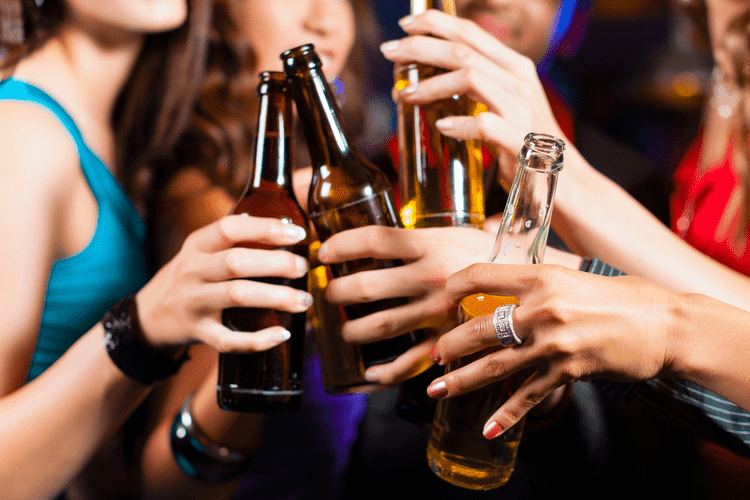Going from a life of drinking to a life in recovery from alcoholism can be drinking again after sobriety challenging. You also need a reason that will help keep you from having relapses, dealing with withdrawal, and staying committed to your goal of sobriety. While admitting that you have a problem is the first step in many recovery programs, part of that process is realizing that you’re afraid.

Tapering and Alcohol Withdrawal Symptoms
Instead of aiming for complete abstinence, for instance, aim to drink fewer than seven days a week. “Try sober Mondays or sober Mondays through Wednesdays,” he says. Crystal Raypole has previously worked as a writer and editor for GoodTherapy. Her fields of interest include Asian languages and literature, Japanese translation, cooking, natural sciences, sex positivity, and mental health. In particular, she’s committed to helping decrease stigma around mental health issues. If you feel comfortable doing so, discuss your challenges with your primary healthcare professional.
Prepare for Each Day
How do I assess my relationship with alcohol and recognize withdrawal symptoms? To assess your relationship with alcohol, start by examining whether your drinking habits are impacting your social, psychological, and physical life. Keeping an alcohol use journal can help track your patterns, triggers, and emotions related to drinking, offering valuable insight. Be mindful of withdrawal symptoms like shakiness, restlessness, and nausea, which may indicate alcohol dependence and require professional help. Additionally, consider how alcohol affects your relationships and daily routines, and reflect on any negative consequences, such as arguments or reduced productivity. If you find yourself struggling with these issues, reaching out to resources like SAMHSA’s National Helpline can provide guidance and support.
Health On the Net Foundation
Proper hydration and nutrition also make it easier to manage withdrawal symptoms like headaches, nausea, and fatigue. With tapering, you start slowly to minimize the chances of severe withdrawal and relapse, avoiding the shock quitting cold turkey can cause. Alcohol tapering should be personalized, based on how much and the length of time someone has been drinking.
12-step Facilitation Therapy encourages peer support through Alcoholics Anonymous (AA), and family or couples therapy repairs relationships affected by alcohol use. Combining therapy with medication and peer support increases long-term recovery success by treating both the physical and emotional aspects of alcohol dependence. Many individuals benefit from understanding the stages of recovery from alcohol, as it helps them navigate the challenges and progress toward lasting sobriety.

Writing marijuana addiction down personal reasons for quitting, such as improving health, regaining control, or enhancing mental clarity, provides a powerful reminder during moments of temptation. A strong purpose reinforces long-term success in achieving an alcohol-free life. For those struggling with alcohol dependency, quitting cold turkey can be dangerous and lead to severe withdrawal symptoms.
- Behavioral therapies and counseling help individuals quit alcohol by addressing triggers, changing thought patterns, and building coping skills.
- This rare, emergency condition causes dangerous changes in the way your brain regulates your circulation and breathing, so it’s important to get to the hospital right away.
- It can be used with counseling or therapy and is not meant as a substitute for professional help.
- Yet these symptoms are “irritability, poor concentration, feeling shaky, feeling tired, difficulty sleeping or bad dreams”.
Whether it’s improved relationships, better health, or weight loss, keeping the “why” in sight can help boost your motivation. No content on this site, regardless of date, should ever be used as a substitute for direct medical advice from your doctor or other qualified clinician. The proven strategies on this page are recommended to reduce excessive alcohol use and alcohol-related harms. Take the assessment and get matched with a professional, licensed therapist.
If you turn to alcohol to ease anxiety, try exercise as a healthy alternative. At the end of the day, one of the most important tools you have at your disposal is self-compassion. Instead of criticizing yourself for having a hard time or slipping up and having a drink, remember that no one’s perfect. What matters most is your ability to maintain an open, curious outlook as you learn what does and doesn’t work for you. Maybe you don’t think you depend on alcohol exactly, but you still wonder whether you might be drinking too much.

Identify and Manage Personal Triggers
The clinicians at Monument, such as myself, are here to support you at every step. The alcohol https://lab.haatch.in/tirra/2022/09/09/oxycontin-addiction-effects-causes-dangers-and/ recovery timeline takes time and patience, but it works. When setbacks occur, remember that they don’t erase your progress. If you were in a martial arts class and you lost a match, you wouldn’t have to give up your black belt. You get to keep all the knowledge you learned and continue on. Changing your relationship with alcohol isn’t based on a pass/fail system.
Download the free 20-page booklet, “Rethinking Drinking: Alcohol & Your Health”.
Keeping a drink diary is a powerful tool for anyone looking to reduce their alcohol consumption. By recording each drink consumed, individuals gain insights into their drinking habits and how these patterns align with their goals. This practice fosters self-awareness and accountability, helping to identify triggers and times when cravings are strongest. Creating a plan for alcohol consumption enhances awareness about personal habits.
